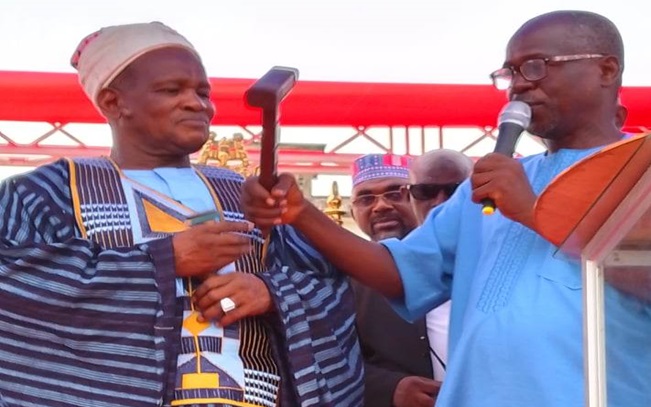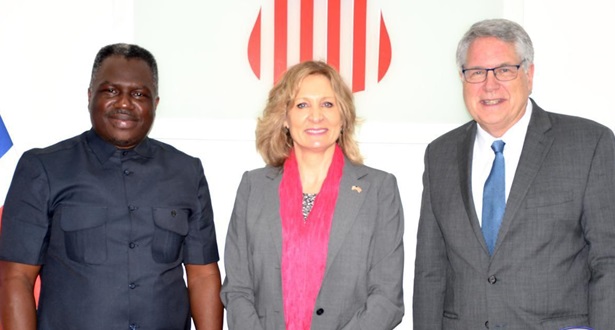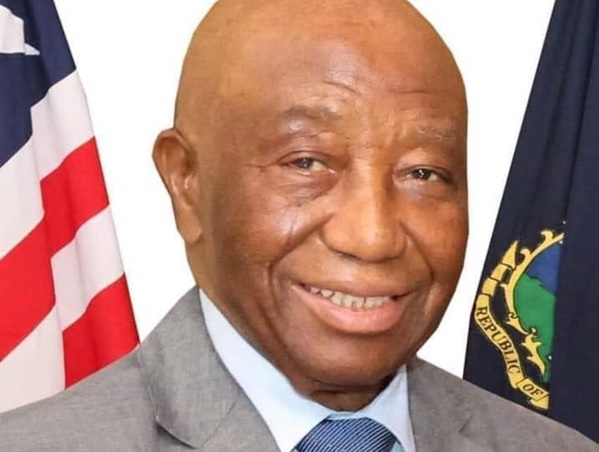Barely three months after ushering in the Unity Party-led government of Ambassador Joseph N. Boakai, the head of the National Fula Governor Council of Liberia Alhaji Almany Mohammed Bailo Sow, says disparities in the Liberian society continue to perpetuate cycles of poverty and marginalization.
Making the disclosure over the weekend at the Antoinette Tubman Stadium in Monrovia, on the theme: “Accelerating Peaceful Co-existence in Liberia,” the Fula Governor avers that with a rapid debate about human capital development, the conversation too is continuously centering on the economy, job creation and not ignoring the public discourse on merit and competence.
“But there is a surging concern for us the Fulani in this country. I do not just see it as a concern but a threat that is gradually undermining the growth and development of the state.
Making specific reference that due to the lack of access to education, the Fula community in Liberia is also a strategy to have them excluded in the society.
“It is imperative that we address these disparities and strive towards inclusive educational systems that leave no one behind,” the Governor adds.
He says “education must go beyond the mere transmission of information; it must instill values of tolerance, respect for diversity, and adherence to ethical principles. Inculcating a culture of respect for the rule of law requires not only an understanding of legal principles but also a commitment to upholding justice and fairness in all aspects of life.”
The head of the Fula Governing Council of Liberia says education and the rule of law are indispensable pillars of a just and equitable society.
“Education empowers individuals to understand, respect, and uphold the rule of law, while the rule of law provides the necessary framework for the provision of quality education and the protection of fundamental rights. By investing in inclusive and equitable educational systems and strengthening adherence to the rule of law, we can build a brighter future for generations to come,” Mr. Sow says.
He says education plays a pivotal role in shaping individuals’ attitudes towards authority, governance, and the legal system, thereby influencing their compliance with laws and regulations.
According to him, education is not merely the impartation of knowledge; it is the key that unlocks countless opportunities and empowers individuals to contribute meaningfully to society, but is the most powerful weapon which you can use to change this world.
“Indeed, education equips individuals with critical thinking skills, fosters empathy, and cultivates a sense of civic responsibility,” says the newly inducted Fula Governor.
Governor Sow, affectionately called by his peers as Super, further narrates that education empowers individuals to understand their rights and responsibilities within the framework of the law and enables them to participate actively in democratic processes.
According to Governor Sow, the Fulanis, like any other ethnic group in Liberia are not just merchants but they too are key decision makers of the society too.
The Governor says just few days ago, while listening to a local radio, the conversation on why is it that Liberia is still grappling with the fundamental questions of the society, the effectiveness of education in promoting social justice and upholding the rule of law is contingent upon the accessibility and quality of educational opportunities available to all members of society.
Among other things, he maintains that conversely, the rule of law provides the essential framework within which education can flourish.
“At its core, the rule of law ensures that all individuals are treated equally before the law, irrespective of their social status, wealth, or power. It safeguards fundamental rights such as the right to education, freedom of expression, and equality before the law, creating an environment conducive to learning and intellectual growth.”
He says moreover, the rule of law establishes clear guidelines and procedures for the administration of justice, thereby promoting productivity, stability, and confidence in the legal system.
“This certainty is indispensable in educational settings,” he adds, “where individuals must have confidence that their rights will be protected and that disputes will be resolved fairly and impartially.”
According to the Governor, the rule of law fosters accountability and transparency in governance, which are essential for the effective management of educational institutions. “It ensures that resources are allocated equitably, that educators are held to high standards of professionalism and integrity, and that educational policies are formulated through inclusive and participatory processes.”
He says whilst it is of importance to note that education is very pivotal for sustainable economic growth and development, it is also imperative to note that this does not happen in the absence of peace and co-existence .
“This therefore reminds me further that the Fulani in this country have always demonstrated that despite of her meaningful contributions to the country economy, they have also maintained the stability of this country my fully participating into worthwhile developmental events such as adhering to the rule of law and by large contributing peace of this country.”
He says the long standing history in this country as a people have always reminded them that the indispensable assets that they have acquired in this country they deemed this very imperative to maintain the peace and stability of the state. “This is as evidenced of the support, contributions and our participation into the activities of the state. Unarguably, we are amongst some the few or perhaps the very few ones in this country that have hugely underscored the importance of paying taxes.”
Sow outlines that this is an indication that they too have long since understood that the surest way to maintain the peace of this country is to pay taxes. “But it seems to be troubling that our ceaseless form of national participation to the state is still being questioned and to a greater extent to ignore. The Fulani should not be merchants of the state, the Fulani should not just be merely considered as strangers.”
He adds that the Fulanis should not also be viewed as ordinary spectators into the political and socio-economic of the state. This therefore suggest that we too should be part of the decision making process of the state. This squarely means that the Fulani are qualified and competent to serve the country through any position of confidence and integrity.
According to him, there are other challenges that the Fulani community have been faced with as obstacles to her participation or inclusion into the decision making process of the state. Today,the Fulanis community is proud of many of her sons and daughters as professionals in different fields of study.
“Our country is at a crossroads. Liberia holds so much promise, but that promise, as envisaged originally by the founders, has faced many stumbling blocks over a century of statehood. Many of these outlined problems are foundational that we as Fulani can collectively work together to achieve.” He stressed.







